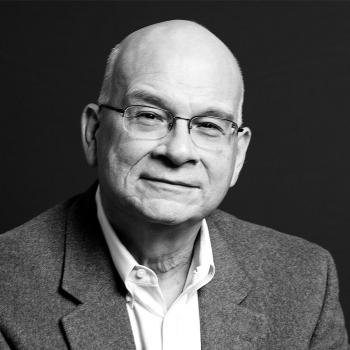 There’s a famous philosophical thought experiment, attributed to Robert Nozick, that presents the question of the “experience machine.” Imagine you are offered the opportunity to be placed permanently into a sensory-deprivation tank, where electrodes—capable of triggering an infinite range of thoughts and sensations—will be connected to your brain. All knowledge of the procedure will be purged from your memory, meaning that, for you, there will be no noticeable difference between true and simulated experiences. An infinite world of pleasure and possibility awaits.
There’s a famous philosophical thought experiment, attributed to Robert Nozick, that presents the question of the “experience machine.” Imagine you are offered the opportunity to be placed permanently into a sensory-deprivation tank, where electrodes—capable of triggering an infinite range of thoughts and sensations—will be connected to your brain. All knowledge of the procedure will be purged from your memory, meaning that, for you, there will be no noticeable difference between true and simulated experiences. An infinite world of pleasure and possibility awaits.
Would you enter this “Experience Machine”? Nozick’s hypothetical forces to the surfaces the question of whether truth itself matters more than the illusion of truth. And film fans, of course, will recognize this as the very scenario dramatized by the villainous Cypher in 1999’s The Matrix.
And it’s this thought experiment that kept coming to mind as I read through a recent set of discussions around the relative merits of “cultural Christianity.” By “cultural Christianity,” I mean the trappings and effects of traditional religiosity, even as mere echoes (within a secularizing culture) of a more vibrant history. In America, think of the motto “In God We Trust” on American coins, or the invocation “God save the United States and this honorable Court” at the start of Supreme Court sessions; many European nations, of course, have more layers given their history of formal religious establishment. These discussions have largely taken the form of pushback against the conventional wisdom that “cultural Christianity” is no real good at all. That conventional wisdom, for its part, tends to valorize the marginalization of the faith, or suggest that the decline of Christianity in the public square is a largely unqualified good since it serves to purify the Church.
The problem with this take—celebrating, that is, the decline of “cultural Christianity”—is that it doesn’t tend to reflect a lot of confidence about Christianity’s truth-claims about human nature, the faith’s transformative effect on individual lives, or the benefits to “weaker brethren” of inhabiting a faith-sympathetic rather than faith-hostile culture. It’s far from clear that a society altogether purged of its historic Christian traces will lead to a stronger Church.
In a recent piece at The American Conservative, three prominent proponents of “political Catholicism” push back on the position that “Christianity . . . can only be publicly important when sincerely embraced and spontaneously expressed” and instead affirm a set of practices that might not “guarantee the salvation of every soul, but [that lay] down structures that ma[k]e such a thing easier.” Despite waning rates of formal religious participation among the European public, the authors note that
Even in parts of Western Europe where Mass attendance has waned, annual festivals preserve the cult of local saints and patrons, as late June’s feast of Saint Peter is commemorated by fishing villages dotting the Mediterranean coast. In secular Germany and Austria, Sunday remains a day of rest defended by the law. Like the quiet country shrines still visited by the faithful, these vestigial practices could become functional parts of Christian politics once again.
From a certain perspective, there’s much I agree with here. On a political level, I certainly support the deployment of “structural, embodied, material” realities that support the family, protect the dignity of workers, allow time for worship, and so on. And the piece makes clear that, contra some of the more strident claims of their critics, the authors aren’t interested in a neo-inquisitorial project intended to root out the shadow of heresy within individual souls.
What I am less sure about, however, is the possibility that “these vestigial practices could be functional parts of Christian politics once again”—at least absent some sort of social transformation that would upend our present epistemic landscape completely.
The great genius of Christian practice is that its prayers and liturgies teach—in a way that its visible symbols and cultural forms, when stripped of their surrounding context, don’t necessarily. One learns to appreciate the meaning of aesthetics and practices through repetition and submission and repeated exposure, yes—but also through catechesis and spiritual formation that take seriously the interiority of the individual. And I would contend that this latter is, within modernity, the necessary condition for a proper engagement with the former. The pedagogical effect of a practice is correlated with the relative “thickness” of that practice.
An obvious rebuttal to this charge is that, like so many Protestants, I’m overintellectualizing the matter; proper theological understanding matters less than obedience and participation. That may be so, but I would contend that that principle only really holds within a community of practice otherwise unified around the same set of formal commitments. This is because, in a situation (such as ours under modernity) where Christian truth-claims are contested, alternative—heterodox—understandings of the meaning of Christian practices are always ready at hand to displace orthodox understandings. It’s common today to hear aggressive counter-narrations of the Christian story, such as that the cross itself stands for a morbid fascination with death rather than with the beauties of finite life. And one can easily innovate new arguments along the same lines: what if the linked beads of the rosary stand for the oppressive hierarchy of the Great Chain of Being, a metaphysic that must be overthrown?
In short, the possibility that the forms of “cultural Christianity” can be aids to faith really only exists in a milieu where the meaning of those forms is not constantly contested. But today, the exterior markers of “cultural Christianity” have—tragically—been rendered ambiguous. And where the meaning is ambiguous, at best those markers tend to become expressions of mere sentimentality rather than genuine pedagogical tools. In the British newspaper The Times, Matthew Parris recently sketched out an argument that should haunt all of us who would like to see a revival of Christianity in the public square.
I don’t believe in God. But I love the Church, pay my subs to All Saints in Elton, sing hymns and delight in the Testaments Old and New. I say my prayers every night not because anyone is listening, but because I always have. . . . Permit me talking about myself because there are millions like me. This is the Church of England we want to be part of—if semi-detached. It’s intimately, inseparably associated with bricks and stones and windows, ritual and music, theologically unchallenging, with a certain mild muzziness as to doctrine[.]”
What is risked by an uncritical affirmation of “cultural Christianity” is this kind of theological Potemkinism, an approach to culture that places the accent on outward indicia of belief rather than the thought-lives of its residents, to the point that one’s ideal “Christian society” becomes really an experience-machine version of Christianity. On such a model, those indicia are easily appropriated by those less interested in theological depth than power politics.
Of course, as the Christian tradition has recognized from its very earliest days, no temporal power can coerce interior belief, and I certainly don’t mean to imply that any should try. Rather, it seems to me that the inherent problem with attempts to shore up “cultural Christianity” bespeaks a larger difficulty with the invocation of premodern societies as models for the reconstruction of postliberal ones: a harmony of shared beliefs and cultural practices can only really hold insofar as individuals are, to a certain extent, epistemically isolated from challenges to those beliefs. And here we get to the logic of why the Catholic church published an Index Librorum Prohibitum—list of banned books—for so long: information has to be controlled in some way, so that the meaning of critical Christian cultural forms isn’t rendered ambiguous. Under the conditions of radical intellectual pluralism generated by the printing press, the internet, the modern smartphone, and so forth, I’m not sure the symbols of “cultural Christianity” can be reinvigorated in the way that their defenders desire.
Speaking for myself, I’m drawn to an appreciation of my civilization’s Christian past that is not quite so instrumentalized. Old churches and old invocations are worth preserving because they attest to the glory and beauty of God—and as far as I’m concerned, this is a sufficient end in itself, one that has nothing to do with Parris’s pro forma ritualism or any attempts to press the leavings of “cultural Christianity” back into political service.
As far as the salvation of souls is concerned, I think that process will probably have to proceed from the inside out, rather than the outside in. Maybe that just makes me a quintessential Protestant, but I’d prefer to think it makes me an observer of the times.












